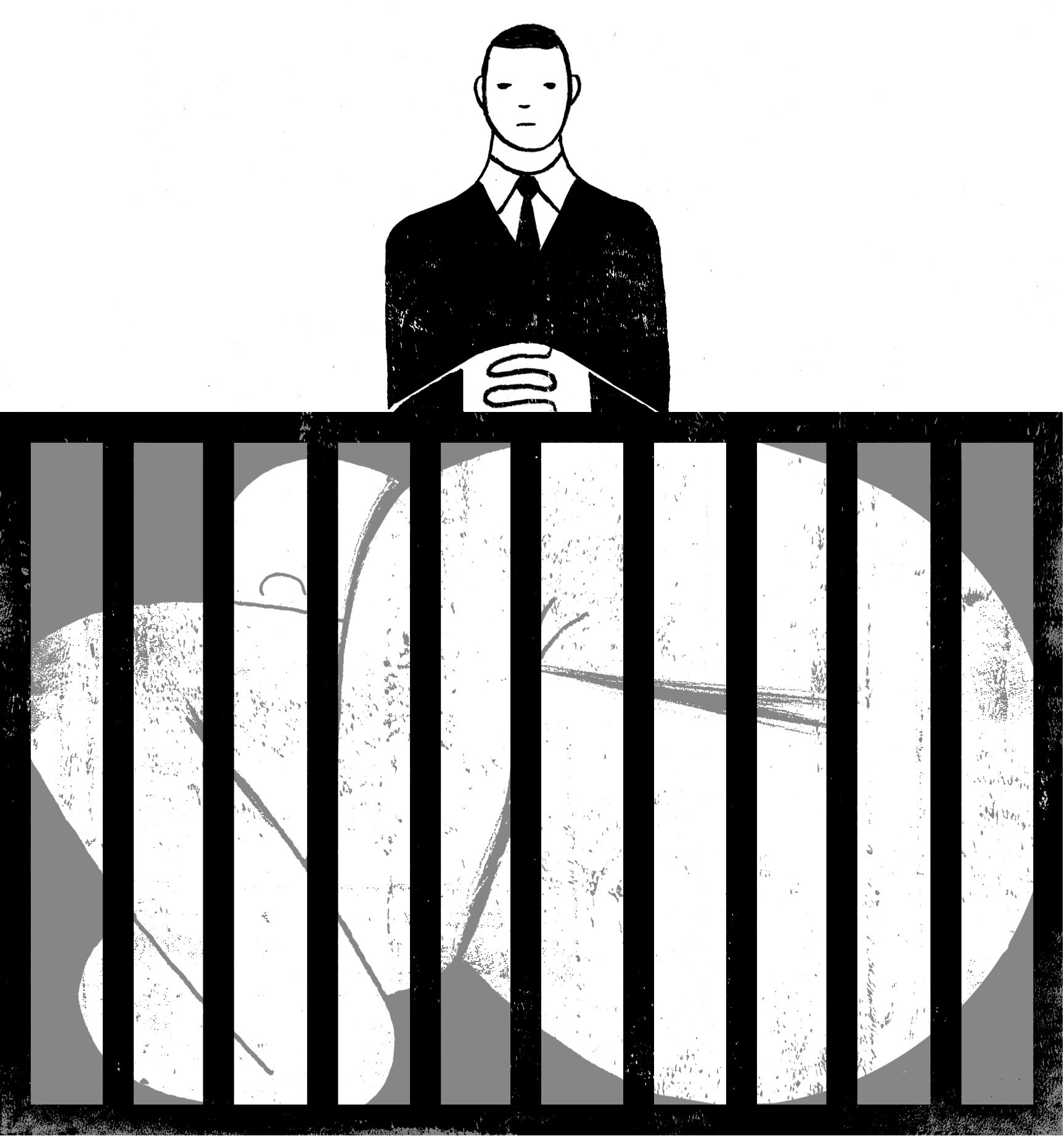Image Credit: Edel Rodriguez
President Barack Obama has promised one of the most sweeping criminal justice reforms in recent years and has built a strong bipartisan coalition to support it. However, while the Constitution gives him the direct authority to immediately reverse glaring injustices—through the use of the power of pardon and clemency—Obama has been extraordinarily cautious about acting. As the editors of The New York Times observed, “until recently President Obama was the least merciful president of modern times.” Indeed, the only high-profile pardon recipients under Obama have been Thanksgiving Day turkeys. With less than a year left in office, it’s time Obama became bolder with his powers.
One case among the thousands now before Obama cries out for consideration. That is the 2006 conviction of Alabama Governor Don E. Siegelman on corruption charges stemming from his acceptance of a $500,000 donation as he sought to pass a state lottery to fund public education. The donation was made by a health care executive, whom Siegelman reappointed to an uncompensated state hospital oversight board. As more than 100 of the nation’s current and former attorneys general have pointed out, this prosecution was extraordinary. If such conduct is corrupt, then there is hardly a senior political figure in the country who could escape prison—including Presidents George W. Bush and Barack Obama, who both gave dozens of diplomatic and other government appointments to individuals who contributed or aggregated six- or seven-figure sums to their own campaigns.
In fact, Siegelman’s Republican successor proceeded to appoint one of his major campaign donors to the same hospital oversight board.
This case bares all the hallmarks of politically motivated prosecution. After Siegelman’s conviction, a series of newspaper and broadcast exposés established that he had been the victim of a political vendetta orchestrated by Texas-based consultant Karl Rove and a number of senior Alabama Republicans. CBS’s “60 Minutes” got wind of the case and provided coverage on the essentially undisputed political shenanigans behind the case. Newspapers around the country called for Siegelman’s release.
Then the story got even stranger. The judge who handled it, and whose bias against Siegelman was apparent to most observers but was hastily covered up by his colleagues in black robes, has since been forced to resign in disgrace.
He assaulted his wife in an Atlanta hotel and then lied about it to law-enforcement officials. The victim was, incidentally, both his former mistress and the court officer in the Siegelman case. Notwithstanding his resignation, judicial conference officials are so appalled by the judge’s misconduct that they are considering a recommendation that Congress impeach him anyway, to strip away his benefits.
In the meantime, Siegelman has sat in prison since September 2012, convicted of conduct that virtually no one believes is actually a crime. At the end of last year, he spent eight weeks segregated from the prison population, in a special-housing unit in the Louisiana facility where he’s serving his time—for having the audacity to protest his innocence in a radio talk show conducted from the prison. (According to Bureau of Prisons policy, prisoners are not permitted to claim publicly that they’re innocent, even when the evidence clearly establishes that they are.)
He spent eight weeks segregated from the prison population, in a special housing unit in the Louisiana facility where he’s serving his time—for having the audacity to protest his innocence in a radio talk show conducted from the prison.
The pardon and clemency power is clearly the right way to approach this matter. But there is an obstacle: associate deputy attorney general David Margolis, the senior-most career attorney in the Justice Department. Margolis has intervened numerous times to block internal inquiries into media reports of political conspiracies behind the Siegelman prosecution, according to several highly placed sources at the department. He personally pushed back against conflict-of-interest complaints filed against the U.S. attorney who brought the prosecution, whose husband was a principal funder and adviser of Siegelman’s political adversary.
Margolis wrote a decision that found no wrongdoing on her part—in the face of an enormous body of evidence to the contrary.
Margolis also silenced a whistleblower in the prosecution team, threatening disciplinary action over disclosures, all as part of an effort to stem embarrassing media leaks. As one Justice Department source told me, “David thinks the way DOJ managed this case, if brought to light, would do real harm to the reputation of the department. He’s obviously right about that.”
In the current pardons structure, the president turns to the Justice Department’s pardons attorney for guidance on pardons and clemency. That pardons attorney, at present, reports to Margolis. For the moment, that would seem to dampen any hopes for a pardon or commutation of sentence.
Yet, Siegelman’s case is a clear-cut one for a pardon, for several reasons.
The first is that the Justice Department’s theory of a crime is attenuated at best and never should have been upheld in the federal courts. The Supreme Court has already questioned it in open argument and may now be preparing to hand down a ruling that would void the theory on which Siegelman was tried.
The second is that the specter of political malfeasance pervades the entire case, particularly infecting the conduct of the Justice Department and of the federal bench, which rattles public confidence in the fair administration of justice. Indeed, polls in Alabama consistently show that majorities believe that Siegelman was the target of a political vendetta.
The third is that the sentence given to Siegelman by his disgraced former judge, seven-and-one-third years (later reduced to six-and-a-half years), would be unconscionable even if the first two points weren’t valid. Siegelman’s “crime” is an absurdity—even politicians who actually take bribes for favors, as former Alabama Governor Guy Hunt did, get fines, not prison sentences.
Consider Virginia Governor Bob McDonnell, and the copious evidence of venality in his conviction on 11 counts of corruption, none of which exists in the Siegelman case. McDonald was sentenced to two years in prison. By contrast, Siegelman has already served almost four years, much of it under very difficult circumstances.
The rank injustice of this case screams out for direct action by the White House, and for bypassing the Justice Department, whose conflict of interest make it an unreliable adviser to the president in such circumstances.
Scott Horton is a fellow at The Nation Institute and a contributing editor at Harper’s.






